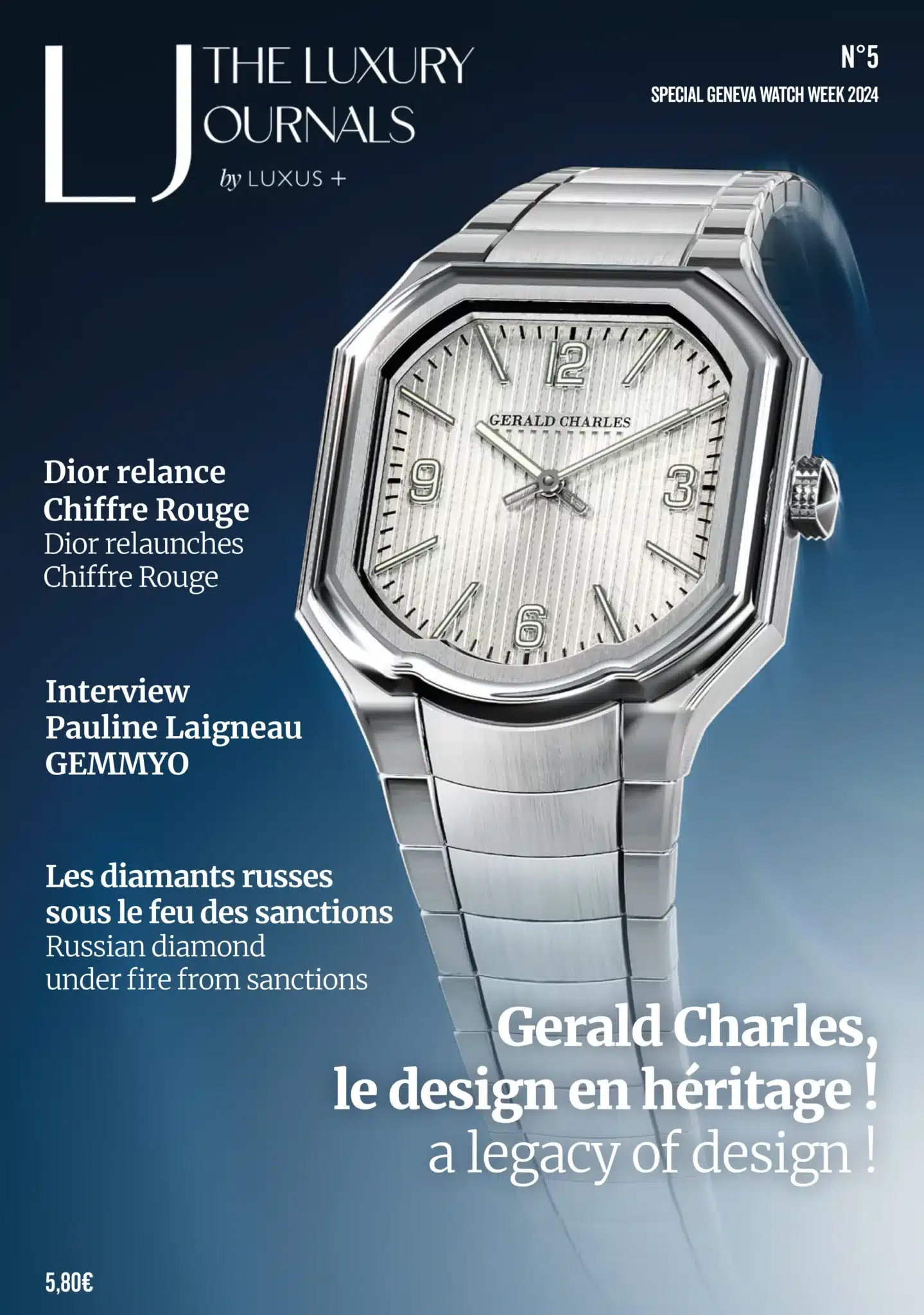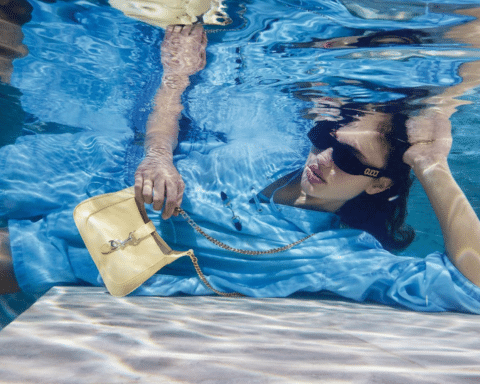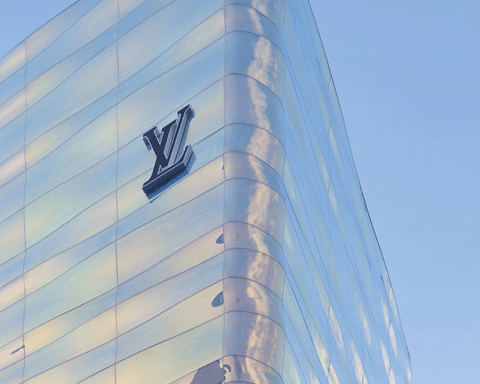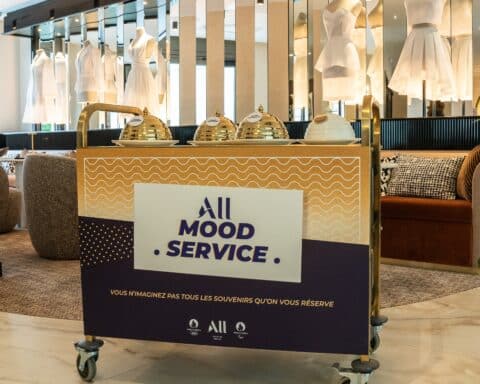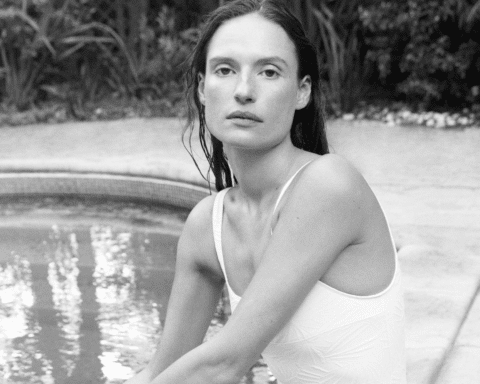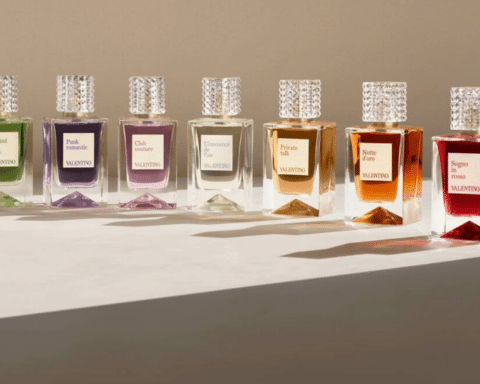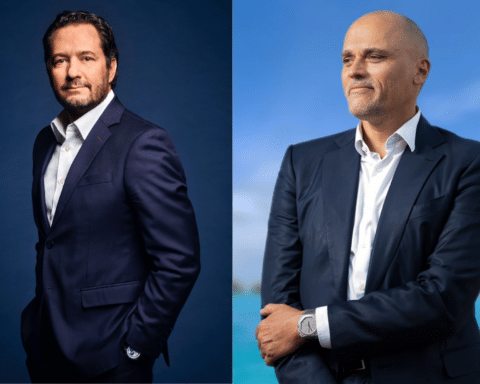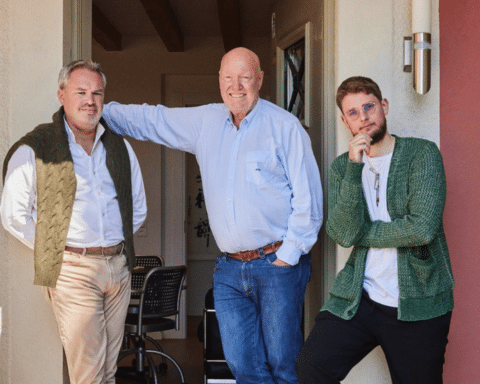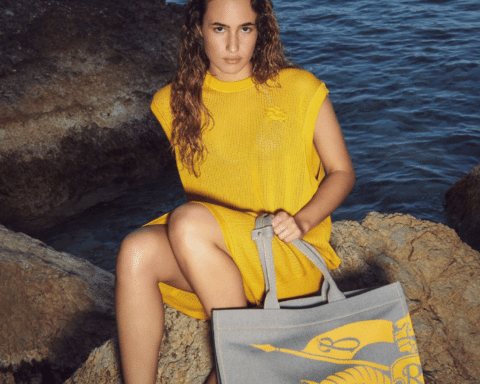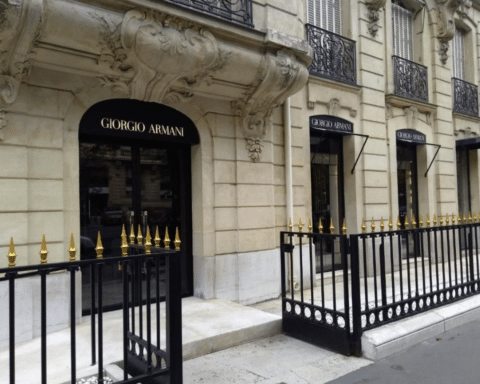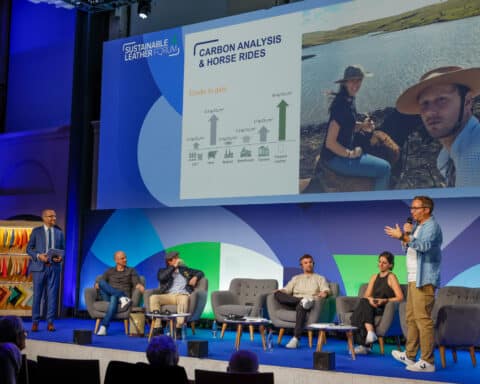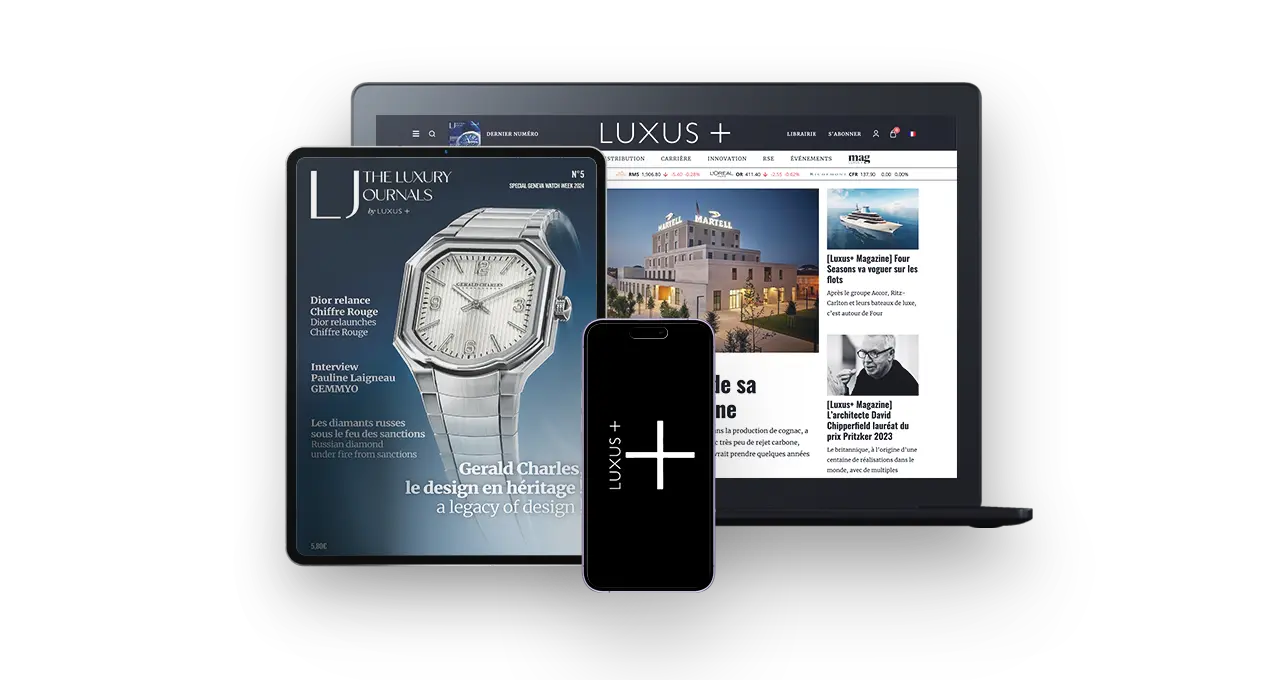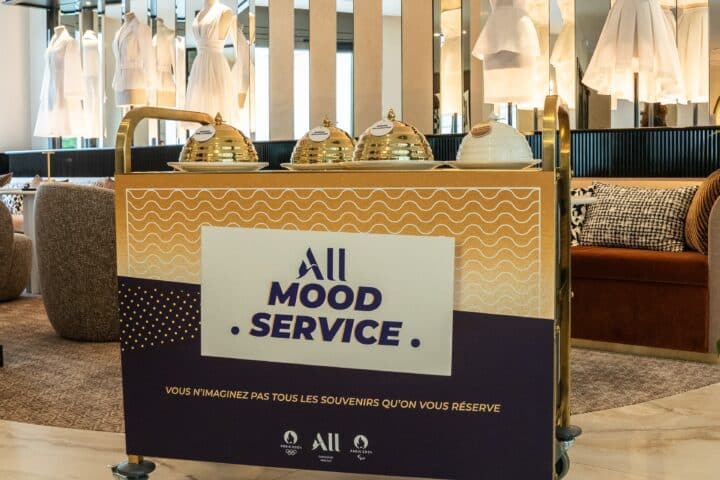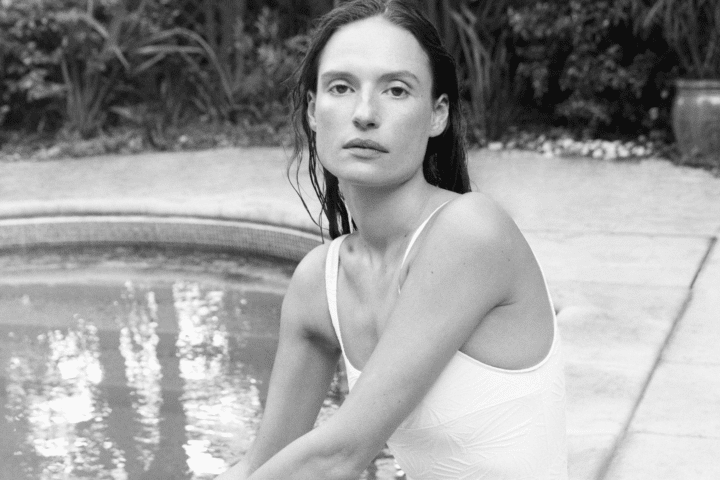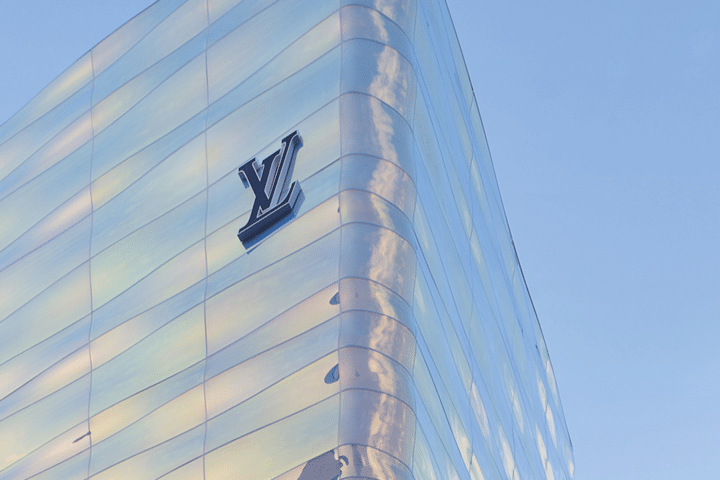Meet Bérengère Wolff & Marion Derouvroy, associates of Maison Trafalgar, a haute couture writing house that delights luxury goods professionals and lovers of chiseled texts, whether on paper, digital or at the podium microphone.
“You have the pluck, we have the pen”.
This sense of formula is at the heart of the DNA of Maison Trafalgar, a writing house founded in 2015 by a duo of Lyonnaise women very much into the weight of words. Associate President Bérengère Wolff is a graduate of EFAP and has previously worked for several media and companies renowned for their content creation, including Marie-Claire, Paulette and Warner Bros. For her part, Marion Derouvroy attended the Hypokhâgne preparatory classes and obtained a double master’s degree in literature and business at the IAE Lyon School of Management.
Their message – fundamentally optimistic – stands in stark contrast to the injunction to shorter and shorter formats and the stigma reserved for the literary-minded.
This highly differentiating positioning, which runs counter to the omnipotence of technology and the diktat of poorly digested, quickly forgotten “snack content”, has enabled the duo to be spotted by major luxury brands and all kinds of companies, from multinationals to local craftsmen.
It’s an opportunity for us to take a look back at the skills they’ve rehabilitated and modernized – the Portrait – with a multi-disciplinary team. It’s also a great opportunity to discuss the place of the written word in the digital age and in the age of generative artificial intelligence. It also helps us understand how to improve our writing style and tame this “goldfish society” – this flash memory handicap – depicted by Bruno Patino in his eponymous book, and into which hyperconnection has thrown us all.
Luxus Plus: You’ve chosen “Maison d’écriture haute couture” as your bold and unusual signature. How did you come up with the idea of bringing the world of luxury into the world of writing? What was it about the writing market that prompted you to launch Maison Trafalgar?
Bérengère Wolff: When we created Maison Trafalgar, our aim was to borrow from the vocabulary of craftsmanship and haute couture in order to revitalize literary know-how and counteract the industrialization of storytelling. Noting that the corporate writing market was moribund, we were keen to reintroduce a taste for words into the professional sphere. The aim was not to let the writing market become impoverished by becoming a market for ready-to-consume, not to say ready-to-wear, content.
Marion Derouvroy: Our customers are aware that everything has become sadly generalized and impersonal, and that quality and inspiration are being lost. In our company, they are happy to find a space in which they no longer feel cramped. As craftsmen of words, we have never deviated from our ambition of tailor-made writing, nor from our meticulous style. That’s why some of the world’s leading luxury brands choose us as their preferred partner. In writing, as in haute couture, it’s all a question of demanding approach and finesse of mind.
LP: How does your profession differ from that of the public letter-writer or the high-profile but discreet ghostwriter?
Bérengère Wolff : First and foremost, it’s a question of positioning. We’re not journalists, biographers, freelance writers or ghostwriters. Our customers don’t ask us to melt into the background like a ghost, or to give up our style to fit in with an existing one. On the contrary, they come to us for our vision as literary portraitists, i.e. our sensitivity, creativity and a hint of anti-conformism, too. It’s also a question of commitment. We live in an age where editorial skills are often undermined, where writers are devalued. Our company does not compromise on job security or internal career development. Rather than creating a collective of freelance editors, we have opted for a genuine workshop dynamic. We prefer specialists to Swiss Army knives.
Marion Derouvroy: The profession of portrait painter, like all creative professions, demands a great deal of calm and concentration. This respect for the writing process and the time we give ourselves makes our Portraitists even more loyal to this House; some have been with us since the very beginning. All our work goes through a reading committee, which includes all or part of the Maison team. This allows each of us to perfect and sublimate our work, and presupposes a great deal of mutual benevolence and, above all, humility. A signature can’t be snatched, stolen or imitated; it’s built every day by the commitment of each and every one of us to the long-term future of the company.
LP: Why did you choose to restore the portrait tradition with a modern twist?
Bérengère Wolff: In keeping with its original ambition, Maison Trafalgar has made portraiture an original profession in its own right. But before being modernized, the tradition of portraiture needed to be rehabilitated. For some, it evokes an ego game, reminiscent of hagiography, or texts written with stylistic surgery. Those we read in the press sometimes suffer from an excess of storytelling, a starification that no longer allows us to be truly moved. As well as flattering biographies that are too insincere, there are also hollow presentations that are far too austere, such as the Chinese portrait, which stands up with three questions and three laconic answers. Conversely, there are also more generous writings that adopt a certain chronological linearity, using key dates as their sole pillars. In reality, the portrait is a format that allows great freedom in narrative construction. Rethinking the tradition of the written portrait meant, above all, taking it out of its clichés; that’s how we modernized it.
Marion Derouvroy: While we refuse to dumb things down, our tone is very much in tune with the times. Our team doesn’t write with a quill pen under a starry sky. And yet, our Maison d’écriture haute couture has won top prizes against tech startups that don’t even exist any more. As literary entrepreneurs, we’re very connected to the business world. The very use our customers make of our writing is modern, a far cry from paper-only use. We’ve gone digital, and our writings can be accompanied by photographic or video versions. What’s more, our Audio Portraits can be used to weave immersive bubbles within a corporate museum.
LP : How does one manage a literary enterprise in a present marked by generative artificial intelligence and the erosion of attention spans? Does this new paradigm disrupt your working methods or complicate encounters with your customers?
Bérengère Wolff: We know the value of our signature, and we’re not afraid of artificial intelligence. In our team, we are certain that these limits, by constantly being pushed and pushed back, will encourage customers to turn to experts even more. The overabundance of AI-generated content is precisely what brings out the quality of human creations, when they are based on genuine know-how and make the effort not to be purely functional or informational. Beyond our textual signature, we can also count on the strength of our method and the reliability of our extraction interviews. AI is not capable of meticulously harvesting this raw material. As for the erosion of attention spans, it’s true that immediacy has turned prose into a volatile material that is consumed and then forgotten. So we spend our time raising awareness of the importance of taking that time.
Marion Derouvroy: This is especially true in the workplace and in the digital world, where reading is often done diagonally. “High-impact content” and other “punchlines” are much more indicative of a kind of struggle, of violence in writing, than of any pleasure in reading. Do we now have the concentration of a goldfish in a bowl? Is it the fish’s fault or the jar’s? Concision is all the rage. Readers never have time. They are constantly bombarded by cascading notifications, pop-ups and messages. That’s why you have to be quick, with short sentences. Basic vocabulary. Line breaks. Even if this is very ambitious, we’re working on reversing these bad habits. The issue is not so much attention span as the distribution of texts that don’t sparkle in the mind. Blaming the reader is tantamount to shirking one’s own responsibility. It’s up to the pen to intrigue, to invite the reader to leave the surface of things, to go deeper.
LP: What are the reasons why your customers call on your services? What preliminary work do they have to do before meeting you ?
Read also > [INTERVIEW] BÉNÉDICTE EPINAY (COMITÉ COLBERT) “LUXURY IS THE OLDEST SECTOR WITH A FUTURE”.
Featured Photo: From left to right: Marion Derouvroy and Bérengère Wolff © Maison Trafalgar


